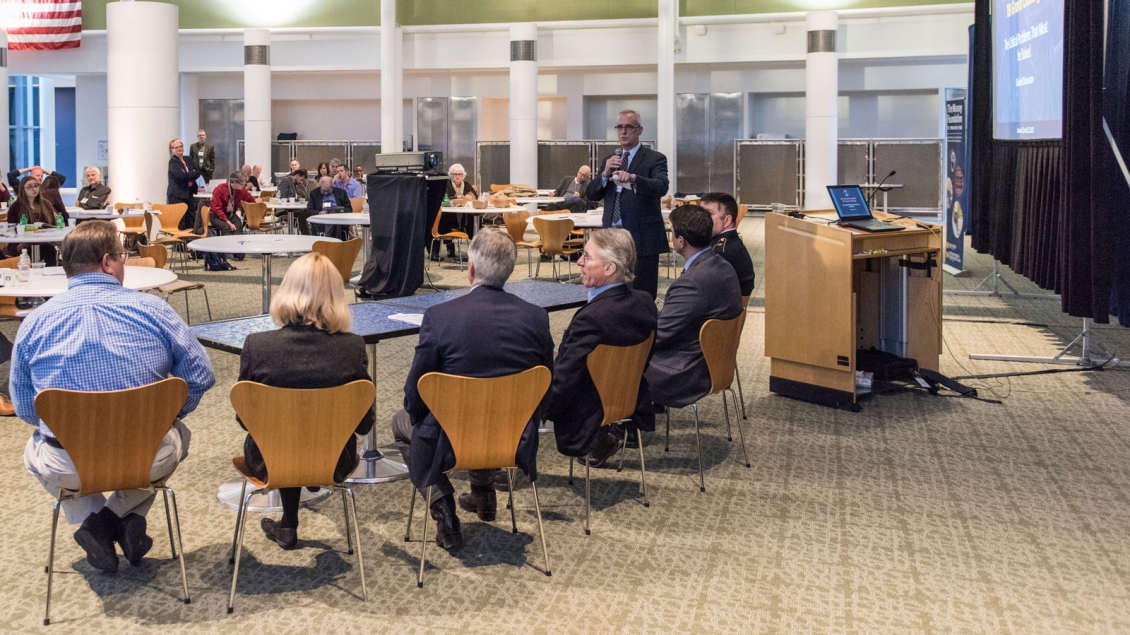
Learning, Leading, Innovating
The Weil Institute’s programs unite members, partners, students, faculty, and experts across various disciplines to share in our common goal: the advancement of critical care.
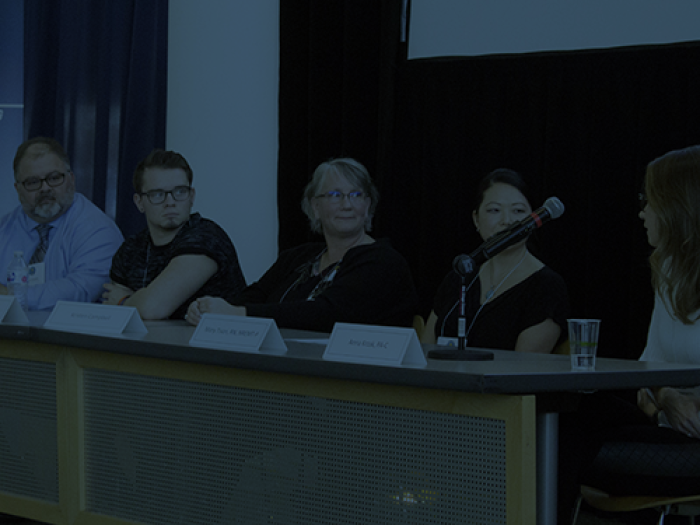
Supporting innovative, high-risk research and ideas to transform outcomes in traumatic brain injury (TBI).
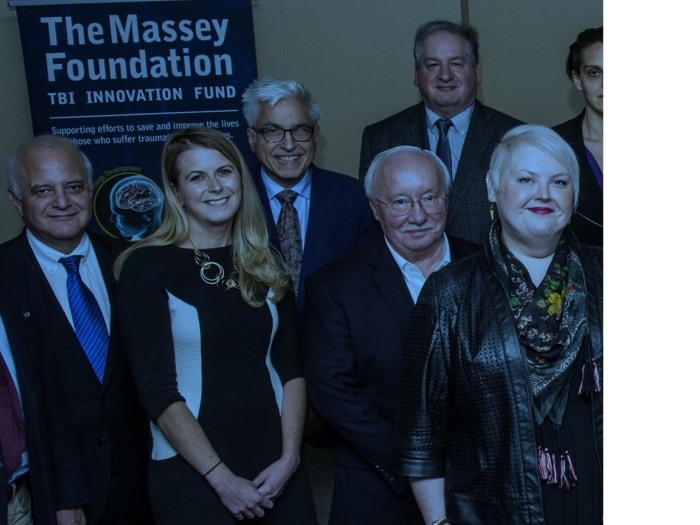
Uniting experts in TBI from across the nation to present their current research, discuss the future of the field and identify important barriers to improving outcomes.
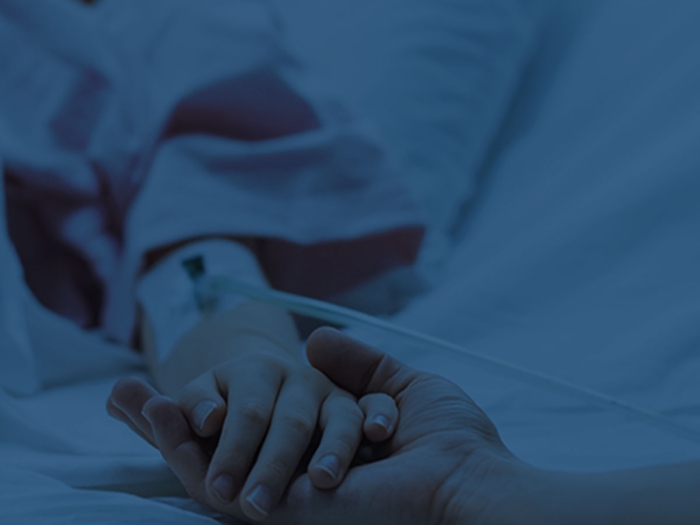
Supporting high-risk, high-reward solutions addressing gaps in the monitoring, diagnosis and treatment of critically ill and/or injured children
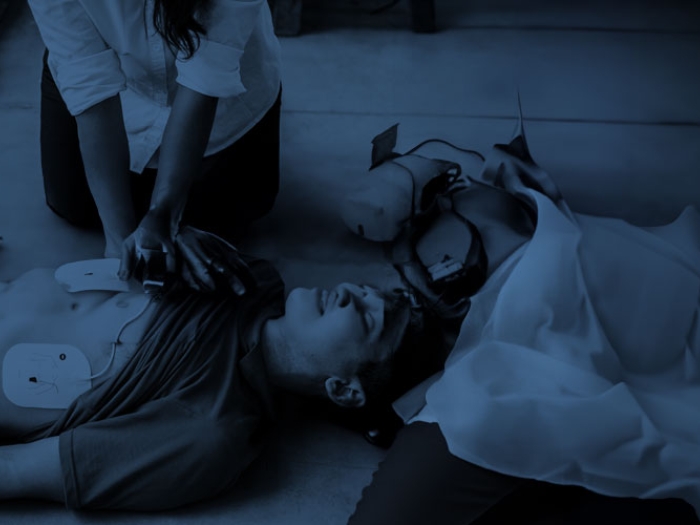
Discovering, translating and implementing innovative therapies focused on preventing brain damage caused by cardiac arrest.
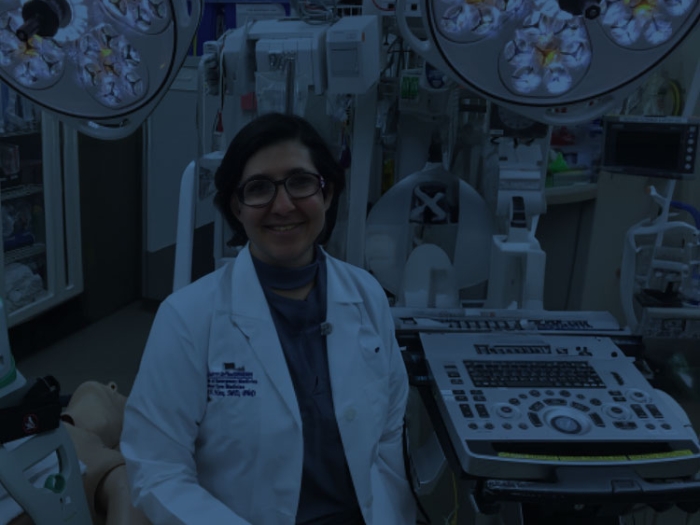
Providing trainees with an understanding of all phases of emergency critical care research.

Equipping leaders in engineering to develop, test and commercialize life-saving innovations.
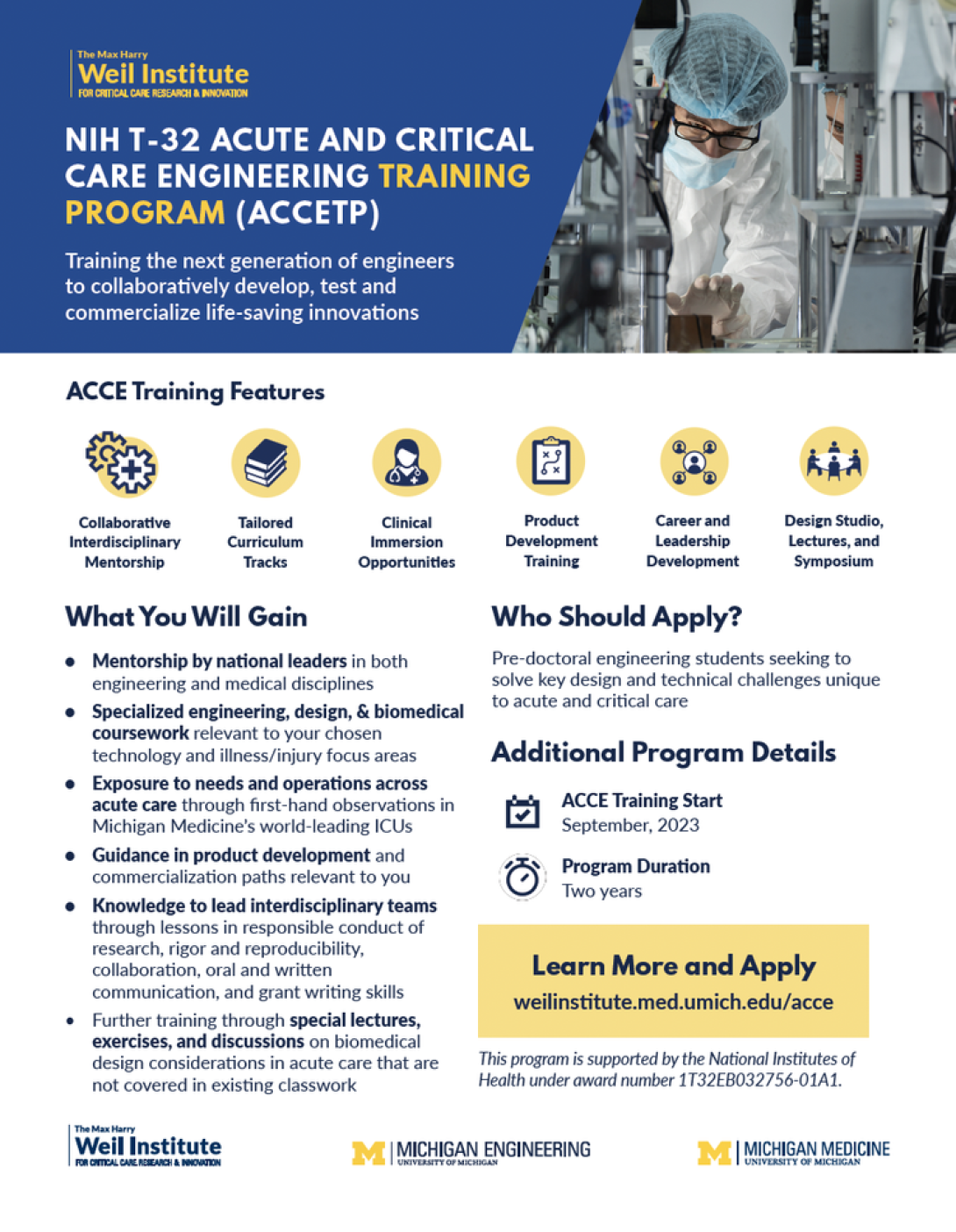
Equipping leaders in engineering to develop, test and commercialize life-saving innovations.
The Acute and Critical Care Engineering Training Program (ACCETP) is a unique NIH T32 Training Program designed to provide translational research training and career development for engineering doctoral students pursuing PhD research with potential for impact in acute and/or critical care settings.
Our goal is to prepare outstanding engineering leaders who we equip to collaboratively develop, test, and commercialize medical technologies and scientific innovations that address the distinct design requirements of critical care.
The Acute and Critical Care Engineering Training Program is open to U.S. citizens and permanent residents, and supports two years of tuition and GSRA salary for participating students. The program is geared toward students who are entering their second year of PhD studies, though applicants at other stages of their program may be considered.
This program is supported by the National Institutes of Health under award number 1T32EB032756-01A1.
Collaborative Interdisciplinary Mentorship
Students will receive mentoring and guidance from University of Michigan faculty having clinical expertise relevant to trainees’ research. ACCETP Directors will work with trainees’ PhD advisor(s) to identify appropriate ACCETP mentors.
Poster and Conference Presentations
Students will prepare brief research presentations at the conclusion of each term, in poster (fall) and conference (winter) formats. Some or all trainees may be invited to participate in the National Institutes for Biomedical Imaging and Bioengineering (NIBIB) Training Grantees Meeting, (expenses paid by training program).
Tailored Curriculum Tracks
Students will learn through competency-based engineering, and design coursework that is relevant to their chosen technological focus, including at least one course in Biomedical Design and Development.
Product, Career and Leadership Development
Students will utilize opportunities for training on product development and commercialization, networking and internships, and career development, as appropriate to their career and research goals.
Clinical Immersion Opportunities
Students will participate in the ACCETP Clinical Immersion Program, in which they are placed into direct contact and observation of clinical professionals in the acute and critical care units of the UM hospital (~60 hours per academic year).
ACCE Design Studio, Lectures and Discussions
Students will participate in a bi-monthly ACCE Design Studio, consisting of special lectures and discussions on program activities and related ACCE topics (~30 hours per academic year).
- Mentorship by national leaders in both engineering and medical disciplines
- Specialized engineering, design, & biomedical coursework relevant to your chosen technology and illness/injury focus areas
- Exposure to needs and operations across acute care through first-hand observations in Michigan Medicine’s world-leading ICUs
- Guidance in product development and commercialization paths relevant to you
- Knowledge to lead interdisciplinary teams through lessons in responsible conduct of research, rigor and reproducibility, collaboration, oral and written communication, and grant writing skills
- Further training through special lectures, exercises, and discussions on biomedical design considerations in acute care that are not covered in existing classwork
Each ACCE student will have a primary engineering mentor and a secondary clinical mentor who will guide them in their research, involve them in ongoing collaborative projects, and help them develop the skills needed to communicate effectively across medical and engineering fields.
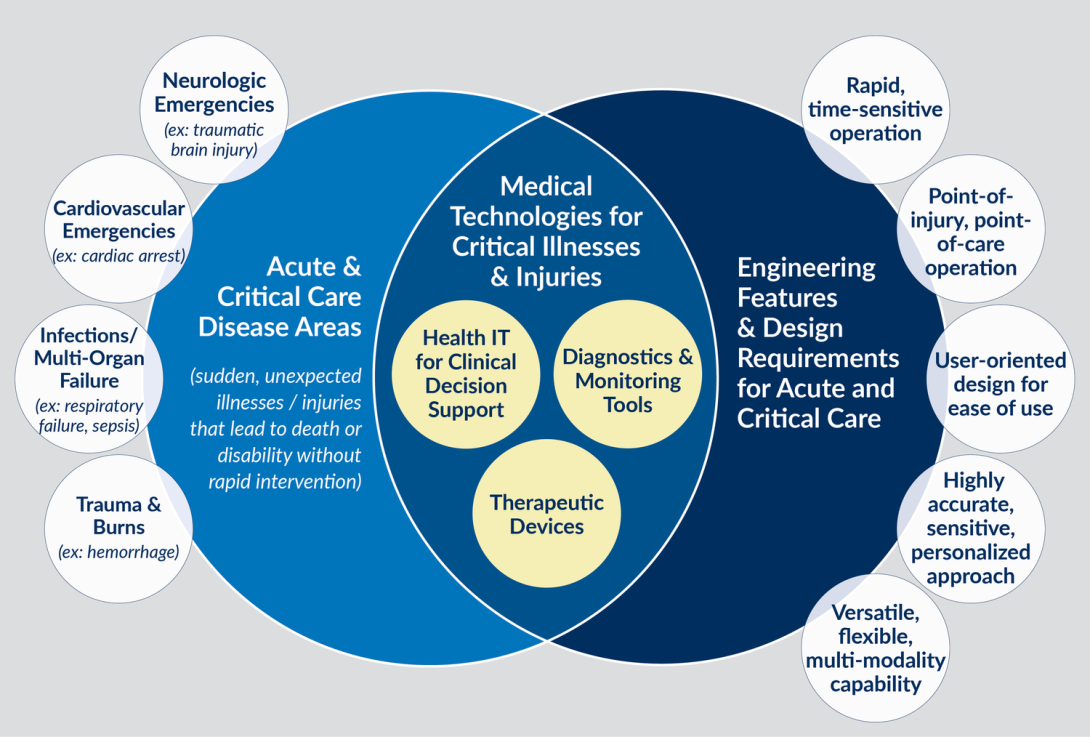
The ACCE program is focused around three core technology groups— health/IT, diagnostics and monitoring tools, and therapeutic devices. These areas are intertwined with four critical care disease areas—neurologic emergencies, cardiovascular emergencies, infections/multi-organ failure, and trauma and burns. These groups share distinct engineering features and design requirements that are driven by common critical care needs such as rapid response and point-of-care use.
ACCE curriculum tracks are comprised of tailored engineering, design, and biomedical coursework relevant to the specific technology area that a trainee chooses to specialize in.
"ACCE trainees will learn to communicate and collaborate across engineering and biomedical disciplines, ensuring that they are prepared to actively participate in and lead interdisciplinary research teams. Ultimately, they will be equipped to develop systems that are seamlessly integrated and relevant to the clinical needs across acute and critical care, propelling their careers in a way that is not currently possible."
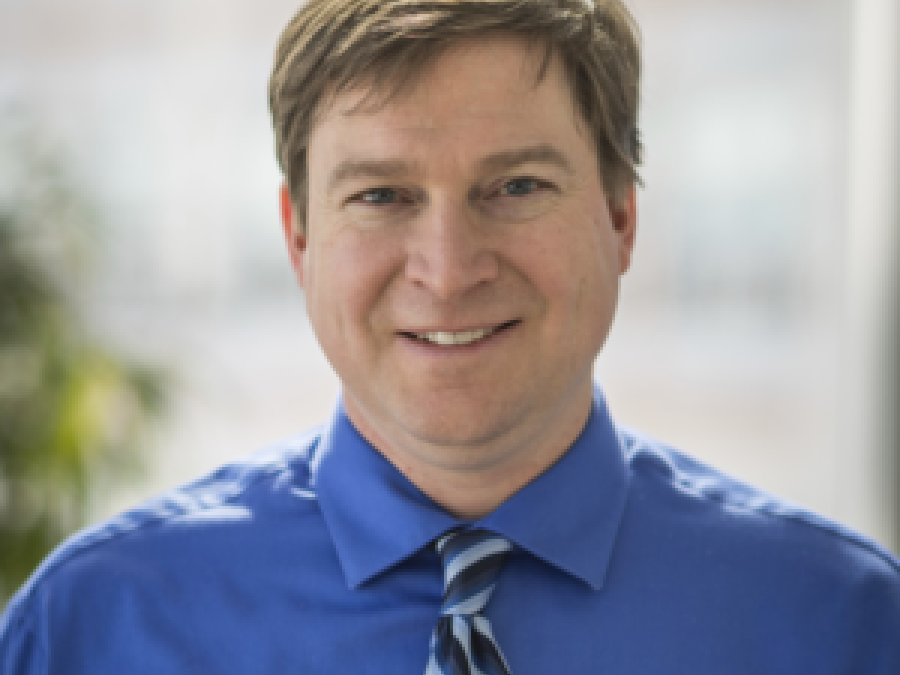
The University of Michigan offers a rich array of education and training programs related to critical illness and injury, supported by the National Institutes of Health. Many of the Weil Institute's faculty members are also leaders in these programs and share common research and educational strategies and resources.
The M-RISE Postdoctoral Training Program In Resuscitation Science
For the more than 350,000 Americans that experience an out-of-hospital cardiac arrest each year, less than 1 in 10 of those treated will survive with good neurologic function.
Out-of-hospital cardiac arrests (OHCA) abruptly occur. Bystanders are the key to saving more lives—if well equipped.
The Michigan Resuscitation Innovation and Science Enterprise (M-RISE) is actively recruiting fellows who seek to understand and improve OHCA. These fellows will be trained to become the next generation of resuscitation scientists with a unique understanding of the entire translational spectrum involved in optimizing cardiac arrest outcomes. Potential areas of focus include discovery and preclinical testing of neuroprotective therapies, clinical trials of neuroprotective therapies, and utilization of a learning health system approach to optimize the system of care for OHCA including implementation of novel therapies by bystanders and first-responders.
The Weil Institute K12 Career Development Program in Emergency Critical Care Research
Thanks to NIH funding, Weil was able to offer a three-year, multidisciplinary training program in emergency critical care research. Scholars chose mentoring teams led by nationally known senior clinician-scientists in Emergency Medicine, Pulmonary and Critical Care, Neurology, General and Trauma Surgery, Cardiovascular Disease, Biomedical Engineering, and Biostatistics, giving trainees an understanding of all phases of emergency critical care research.
With the help of their mentoring team, scholars were able to design their three-year development plan including academic courses, professional development training, and research milestones. Through training in clinical trial design, grant writing, data management, and leadership, scholars advanced their research career by obtaining individual K or R01 funding by the end of their third year of K12 support.
Weil Institute Re-Imagining Critical Care Seminar Series
In keeping with Weil’s mission of transforming critical care through innovation, integration, and entrepreneurship, our Re-Imagining Critical Care seminar series is focused on combining the fundamentals of innovation with the tremendous opportunities that exist in critical care to improve outcomes. This series brings recognized University of Michigan faculty and other national experts in the fields of medicine, engineering, technology development, policy, and many others to discuss basic and advanced concepts in innovation and how these can be applied to recognize and fill the gaps that exist in critical care. Seminars are held once a month and open to the entire critical care, health science, engineering, data science, health policy, and innovation & entrepreneurship communities. It is envisioned that these multidisciplinary seminars will lead to the creation of new ideas and teams to address challenges and identify solutions that will transform critical care science. Click the button below to see the complete line-up and find specific upcoming dates on the Upcoming Events page.
Weil Institute Visiting Scholar Seminar Series
Semi-annually, we invite leaders from all disciplines to present on a range of critical care topics such as neurologic catastrophes, sepsis and severe inflammation, trauma and combat casualty care, and cardiac emergencies. The Weil Institute Seminar Series provides a great opportunity for our members to network and discuss the latest in critical care medicine. Find upcoming speaker information on the Upcoming Events page.
Past speakers include:
Leo Celi, MD, MS, MPH, Massachusetts Institute of Technology, Beth Israel Deaconess Medical Center
Steffen Leonhardt, MD, PHD, Philips Endowed Chair of Medical Information Technology at the RWTH Aachen University
Todd E. Rasmussen, MD, FACS, Colonel USAF MC, Director, US Combat Casualty Care Research Program
More Educational Opportunities
In addition to offering Weil's K12 training program in Emergency and Critical Care Research, we are proud to partner and collaborate with the following training and educational programs:
Training to Advance Care Through Implementation Science in Cardiac And Lung Illnesses (TACTICAL)
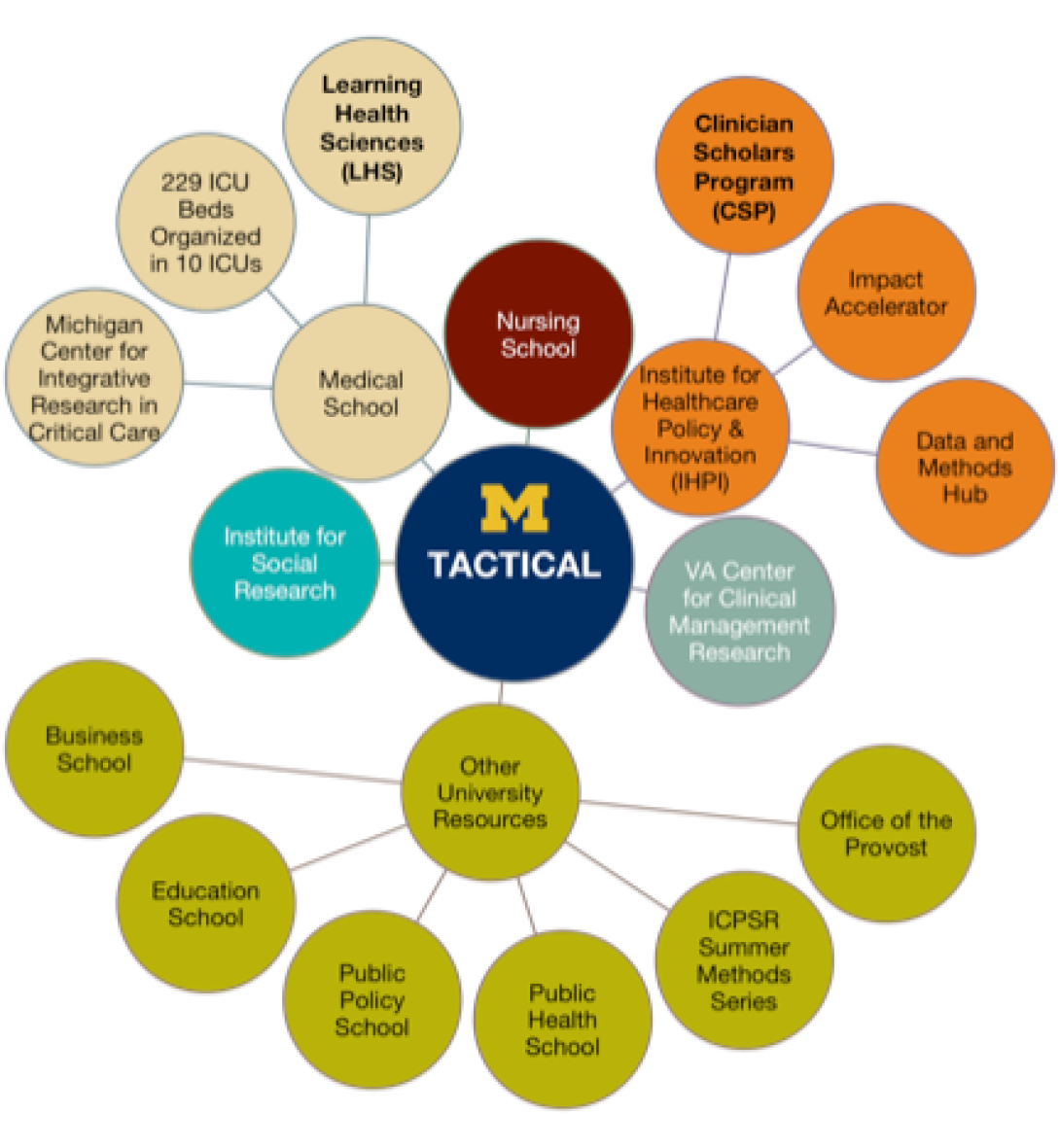
Scholars will be a mix of physicians, nurses, pharmacists, and PhDs with clinically relevant backgrounds. Model candidates will have just completed their clinical and initial research training, and will be ready to begin their first faculty position. In some cases, more mature practitioners who are changing the direction of their career toward independently funded research in implementation science will also be eligible.
TACTICAL will provide five post-doctoral scholars a structured 3-year program of career development. Afterwards, as part of independent research careers focused on bringing evidence-based best practices to improve critically ill patients' lives, TACTICAL scholars will become independently-funded leaders who both drive change at their own institutions while also developing and evaluating better approaches for driving change nationally and internationally.
Multidisciplinary T32 Research Training Program in Lung Disease
During the past several years, the scope of the program has been expanded to introduce trainees to new major areas of modern biology including genetics/genomics, metagenomics, proteomics, metabolomics, stem cell biology, computational biology, and the microbiome. Emerging fields of patient-oriented research have been added or expanded, including health services research and sleep medicine. Our program is truly multidisciplinary, as more than 50 participating faculty trainers are drawn from six different divisions and 16 departments at the University.
The NIH institutional training grant, Multidisciplinary Research Training Program in Lung Diseases (NHLBI T32HL007749), has been in existence since July 1, 1993. The initial program was directed by Galen B. Towes, MD, and supported research training for four post-graduate trainees. The program has been continuously funded since its inception and has provided research training for over 100 research scientists. Funding for the program supports training for 12 post-doctoral research fellows. While the program has evolved considerably over the past 20+ years, the foundations on which the program was built remain intact.

Microfluidics in Biomedical Sciences Training Program
Although the program only supports six students, all those interested are invited to participate in activities sponsored by the program including the annual symposium, seminar series, PIBS 503, and core course CHE696. The program is designed to be an intellectually exciting blend of training in the more quantitative disciplines of chemistry, engineering, mathematics, and physics on the one hand, and the basic biological sciences on the other.
The Microfluidics in Biomedical Sciences Training Program (MBSTP) is a National Institute of Health/National Institute of Biomedical Imaging and Bioengineering funding training program that supports an interdisciplinary approach to graduate training that emphasizes biomedical microfluidics. The program supports six students for two years each. 45 faculty members from 20 different departments from the College of Engineering, the College of LSA, and the Medical School participate.
Being a member of the Weil Institute is more than just attending a seminar.
It is a highly-experienced network of investigators, clinicians, engineers and scientists. It is being on the cutting edge of critical care research at the University of Michigan. It is a community dedicated to finding new and innovative ways to monitor, diagnose and treat critically ill and injured patients. The Weil Institute’s wealth of resources can be a huge benefit for undergraduate and graduate students interested in critical care, research, innovation, or commercialization of new products.
Valuable resources for student members:
Network with Weil investigators, physicians, scientists, & engineers.
Receive the Weil Institute’s monthly newsletter.
Mentorship by Weil’s Commercialization Coach, Ken Spenser regarding commercialization strategies and establishing a commercialization roadmap.
Attend and observe all member events, seminars, symposia and educational opportunities offered through the Weil Institute, including the Visiting Scholar Series, the Re-Imagining Critical Care Seminar Series, and the Grand Challenge.
(Weil’s core member benefits (proposal development, clinical research, data science, etc.) are only available to U-M faculty or staff members. Students may access these benefits by working directly with Weil Institute faculty members who are using them to develop or carry out Weil related projects.)